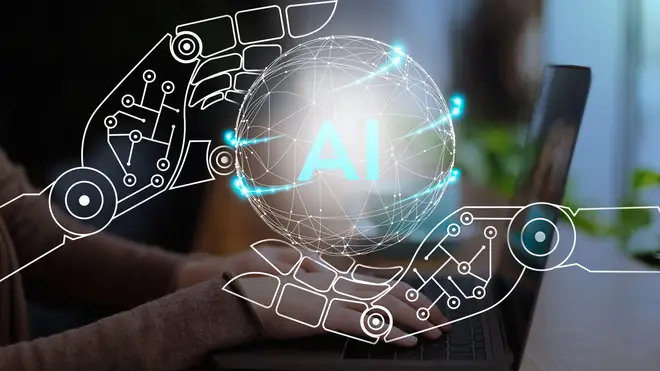
Nick Abbot 10pm - 1am
9 March 2023, 10:14

Dr Stephen Thaler is locked in a dispute with the IPO, after it rejected his bid to list an AI he created as the inventor for two patents.
The UK’s highest court is being asked to rule on whether an artificial intelligence (AI) can be legally named as an inventor to secure patent rights.
Technologist Dr Stephen Thaler is locked in a long-running dispute with the Intellectual Property Office (IPO), after it rejected his bid to list an AI he created as the inventor for two patents.
The US-based developer claims the AI machine named DABUS autonomously created a food or drink container and a light beacon and that he is entitled to rights over its inventions.
But the IPO concluded in December 2019 that the expert was unable to officially register DABUS as the inventor in patent applications because it is not a person.
The decision was upheld by the High Court and Court of Appeal in July 2020 and July 2021.
Dr Thaler has taken his fight to the Supreme Court in London, arguing patent law does not “exclude” non-human inventors and contains no requirements over “the nature of the inventor”.

His challenge against the IPO’s decision will see a panel of five justices decide whether a person must be named as an inventor in all patent cases, even if the invention is believed to be the sole creation of an AI.
It will also rule on whether a patent can be granted without a named human inventor and whether the creator of an AI can secure patents for its inventions.
The case reached the court on Thursday amid recent scrutiny of AI developments – such as OpenAI’s ChatGPT technology – including their potential impact on education, the spread of misinformation and professions.
The DABUS dispute centres on how applications are made under the Patents Act 1977 legislation, and the judges are not being asked to rule on whether the AI actually created its inventions.
Patents, which provide protective legal rights, are granted for inventions that must be new, inventive and capable of being made or used or a technical process or method of doing something, according to Government guidance.
Robert Jehan, representing Dr Thaler, told the judges in written arguments that the expert believes he “cannot truthfully be named as an inventor” of the DABUS creations.
“There is no prohibition in law that prevents patents from being granted for inventions generated by AI systems,” Mr Jehan said.
“While the 1977 Act does not expressly identify non-human inventors, neither does it exclude them,” he said, adding: “It does not and cannot be considered to set any requirement that the inventor must be a person”.
He said the IPO has no authority to investigate whether a named person is actually an inventor and that people “can even name a fictitious person” on patent applications.
Mr Jehan also claimed that other large organisations, such as German technology giant Siemens, have said they had been unable to apply for patents on AI-generated inventions due to the IPO’s policies.
He said any policy prohibiting such patents “acts as a major disincentive to innovation and the UK’s industrial strategy, not only today’s innovation, but for investments needed today to result in future innovation”.
Stuart Baran, for the IPO, said in written arguments that patent law required “identifying the person or persons” believed to be an inventor.
“It remains clear that Parliament intended that a patent would be granted for an invention with a named person as its inventor,” he said.
He said the IPO had not received other AI-conceived invention patent applications like Dr Thaler’s, labelling the dispute a “test case, rather than one which is motivated by any pressing need in the real world”.
But Mr Baran said the IPO recognised “this is a rapidly developing area of technology and the situation may change considerably in the future”.
The lawyer said AI considerations were “far from uncontroversial or clear” and that the case did not provide “a promising basis for changing the law, or formulating new policy to accommodate AI technology”.
He said that following a 2021 consultation, the Government decided there was no evidence that UK patent law was inappropriate to protect inventions made using AI.
Mr Baran accepted the IPO has no power to investigate whether someone claimed as an inventor was the correct person.
But he said that under Dr Thaler’s interpretation of the law the IPO would have to accept “a plainly ridiculous assertion” that inventors named as “my cat Felix”, “cosmic forces”, or “£134.87” would “all have simply to be waved through”.
The lawyer said the IPO’s role is to “maintain a register of patents that informs the public” and that Dr Thaler’s arguments “would frustrate that aim, and there is no basis in the words, in policy or in the legislative history for doing so”.
The hearing is due to conclude on Thursday, with a ruling expected at a later date.